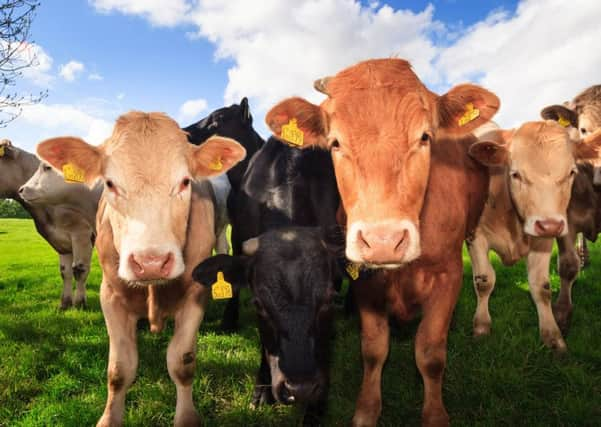Farming's environmental progress hinges on profitable food production, NFU says


Agriculture contributes 10 per cent of the UK’s greenhouse gas emissions and the National Farmers’ Union is calling for Whitehall action to ensure farms are sufficiently supported to reduce their environmental impact.
Current rules dictated by the EU’s Common Agricultural Policy mean that many improvements made on farms over recent decades are being put at risk, NFU president Minette Batters says in a new report.
Advertisement
Hide AdAdvertisement
Hide AdShe said that over the last 30 years, there has been “substantial engagement” by farmers with voluntary environment schemes, with 70 per cent of agricultural land in agri-environment schemes at their peak, but she warned: “We have begun to see a drop-off in the uptake of agri-environment schemes in recent years - largely driven by changes in policy, design and accessibility.
“This can be turned around with a future environmental policy that consists of a mix of incentive schemes, including an environmental land management scheme, complemented by new approaches to funding environmental delivery.”
Among the union’s key asks of government are for a future environmental land management scheme that is voluntary, open to all farmers, simple to apply for and administer, and which offers a fair reward.
In the meantime, it wants improvements to the delivery of current agri-environment schemes which many in the industry consider too bureaucratic and overly prescriptive.
Advertisement
Hide AdAdvertisement
Hide AdThe NFU also wants support for farm infrastructure projects, new technologies and innovative tools to help improve farming’s productivity while reducing its environmental impact.
Ms Batters said: “Continued improvements in productivity through more efficient and careful use of natural resources can reduce farming’s emissions and environmental footprint but this will only happen if farm businesses are given the policy support they need to survive and thrive.
“The bottom line is that farm businesses need to be productive and profitable to be able to continue to deliver the environmental benefits we all want to see.”
The NFU hosted a environment conference in London this week where politicians, civil servants, campaigners and industry representatives joined farmers to discuss agriculture’s environmental contribution.
Advertisement
Hide AdAdvertisement
Hide AdNorth Yorkshire farmer Richard Bramley was one of the speakers and he called for food production and environmental protection to no longer be viewed as competing aims.
“The key message I want to get across is the need for all of us to work together to achieve the ambitious vision we have for our countryside,” said Mr Bramley, who farms near York.
“For too long the debate over the direction we should take, the priorities we should adopt and management measures we should use has become very adversarial.
“If I had one message for today given all the challenges ahead, it would be the need for a new approach, one that sees all parties working together to ensure we can continue to feed the nation and deliver an environment we can all be proud of.”
The Yorkshire Post has asked the Department for Environment, Food and Rural Affairs to comment.